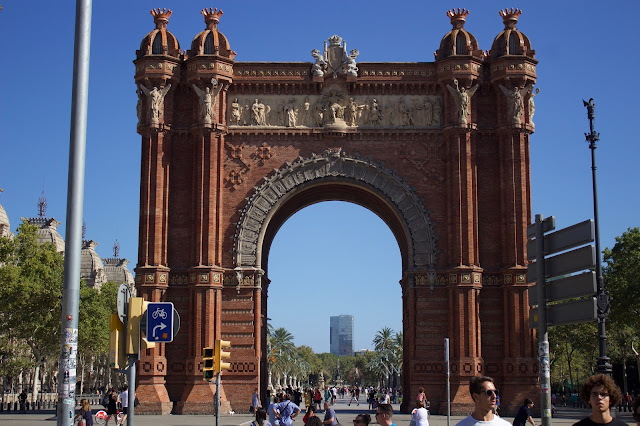The Hero's Journey: The Life of the Expat Part 1
For the past two weeks, I have been the same lesson to my various classes in Spain. The concept: What makes a hero? The idea came to me rather spontaneously about an hour before school started. Luckily, while doing some research, I stumbled across a Ted-Ed video on the subject. After watching it a few seconds, I decided that it fit perfectly into the end of the lesson.
After the main activities and before turning on the projector, I asked the students one final question. Are you a hero? With few exceptions, save from that kid, they generally said no. Rather comically, most replied, “No. We are very young. We haven’t done nothing.”
In one class, one student asked, “What about you? Are you a hero?” At this point, I was already a week into the lesson. I told her that after watching the video, my answer was unequivocal, yes.
In the 4 minutes and 33 seconds, the narrator would outline the basic tenants of Joseph Campbell’s theory of the monomyth. It had a total of 12 sections, much like a clock, in which the circular story pattern. As I watched along with my students, I couldn’t help but feel as though this journey eerily mirrored my own life.
By the end, I was convinced that the expat journey was the epitomical hero’s journey. I’ll outline it below. Let me know if you agree:
Status Quo
According to the video, Joseph Campbell claimed that the story of the hero’s journey always being in his or her ordinary world. This is an easy correlation to make with someone who has moved to another country. Furthermore, in his writings, Campbell emphasizes that while the world may be relatively ordinary, the proposed hero is anything but. Usually, they are something of a misfit whom others in their community view as an oddity. Or, further to the point, they themselves often feel out of place.
While I cannot speak for anyone else, I can say that this was certainly the case for me back in New Jersey. By the time I was 15, I had decided that one of my ultimate goals was to buy a villa in Tuscany. By twenty, I had become more ambitious and decided that I wanted to achieve this by becoming a writer.
I made the mistake of sharing these aspirations with someone I knew. From their perspective, I may as well have told them I was going to build a paper rocket ship and go live on the moon. It was an uncomfortable conversation, to say the least.
Despite this, I still knew at some point that, I would achieve this goal. I just didn’t know how or when.
Call to Adventure
In the next section, the hero is awakened to his or her destiny. The call can manifest in different ways: an invitation, or a challenge? Usually, there is some sort of threat or circumstance that forces the hero to leave his or her world.
In my case, the reasons were two-fold. I wanted to learn Spanish. And for the sake of my own personal mental and emotional health, I knew that I needed to get as far away from New York/New Jersey as possible.
Despite this, I was still a bit hesitant to leave. I was somewhat lackadaisical about submitting the paperwork for my visa and/or preparing other things I needed for my journey. In all honesty, I was waiting for the bottom to fall out. Or for someone to tell me that there had been some colossal mistake.
Funny enough, hesitation is an integral part of the narrative. The hero never truly feels comfortable with the concept of leaving, but he knows that he must accept the call. Because the consequence of refusal would be too great.

Assistance
Next up, you’ll need some help. And according to Campbell, this usually This help usually comes from a supernatural being. But supernatural does not mean magical—it just means someone outside of your world. Or someone who has mastered the laws of both the hero’s world and the outside world.
In the case of the expat, this may mean conferring with a friend who has made a similar journey. Doing research on the internet or taking a language class. Anything that helps you to transition into this new phase.
Departure
Now, it is time to leave. As the video states, “We’re [literally] not in Kansas anymore.” The hero crosses the threshold into a new place that is both glorious, unfamiliar and yet, at all times potentially life-threatening.
Here again, we find an obvious parallel to moving to a new country. At some point, you got on that plane/planes, boat or train and made it to the new world. You may be afraid; the journey it of itself may be somewhat harrowing. Or maybe you almost miss your chance.
In my case, I worked up until the night before my flight I didn’t get home until well after midnight and didn’t sleep much. The following day, I had to finish packing, sign over my car title and pick up my new glasses from the mall. I hadn’t planned on getting new glasses, but my old pair had been lost in an ill-advised interaction with a wave on the Jersey Shore. Though frustrated, I thought that perhaps they would wash up on the beach in Spain.
This was only the start of my troubles, however. Spain had much more in store for me once I actually landed on the shores.



Comments
Post a Comment